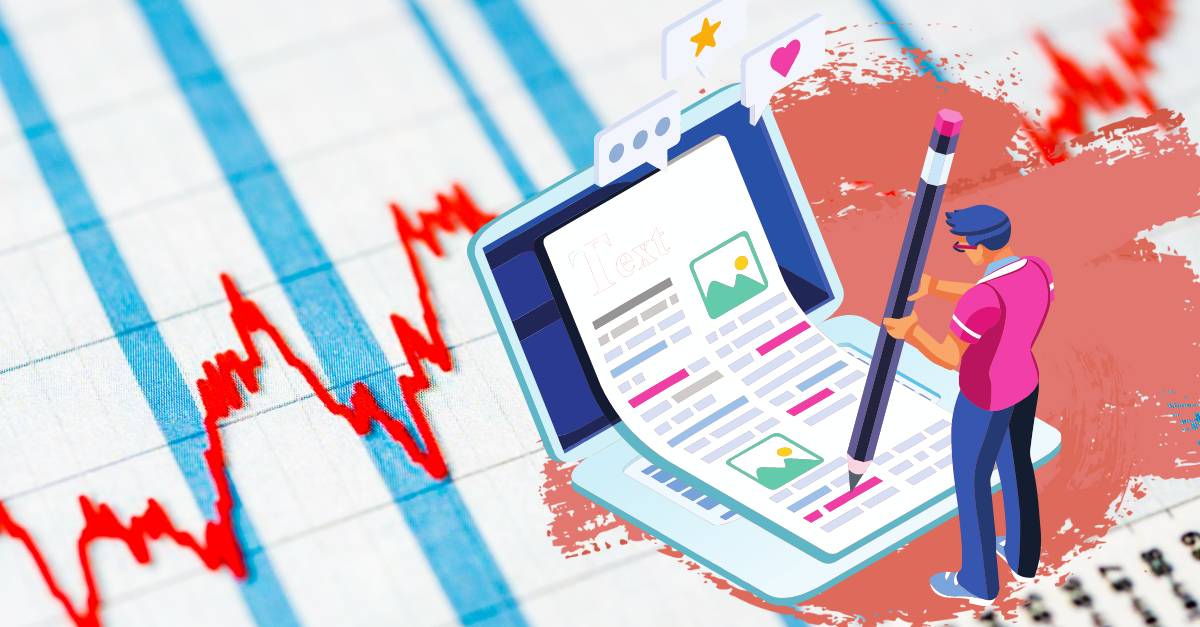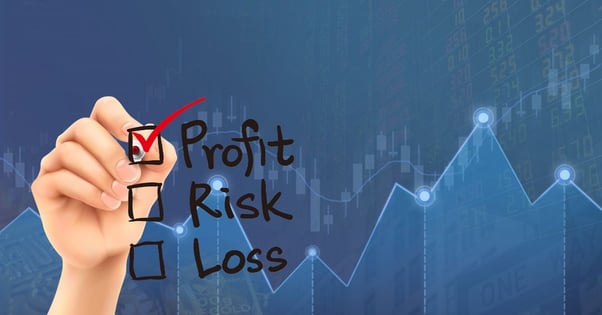Everyone wants to make smart investments but only a few actually realise their goals. There are many factors in play, including which financial vehicle you invest in.
As we all know, foreign currency exchange is one of the most popular financial vehicles in the world, thanks to its high level of liquidity.
So here's the million-dollar question: can you invest smartly in Forex?
This is what we're going to find out in this article.
What exactly is a smart investment?
In a sense, it's a way to invest money to ensure a stable and financially secure future. By investing rather than spending money, you can save for times of instability or emergencies. This means investing primarily for the long-term.
The Forex market, however, moves trillions of dollars in a single day. The value of the currencies traded also changes or shifts as quickly as the economy. Trades are mostly concluded in the short term.
This leads us back to the topic at hand -- how do you become a smarter investor in Forex, then?
The answer is to become a proficient trader and be on the good side of the currency market. This way, you can thrive and succeed in currency trading. What do you need to do?
1. Invest in trading education
Educating yourself about the complexities and intricacies in Forex trading will develop your skills and knowledge. Great traders never stop learning. As you learn and practise, trading currencies becomes easier.
Over time, you will gain the confidence to become proficient in reading the charts, using the right indicators, profiting from various market movements, and making winning decisions, among others. All these will help you grow and preserve your wealth.
Start with bite-sized information and go from there.
A word of caution, the internet is saturated with information on trading strategies and tips. It's so easy to become overwhelmed with the flood of data.
The best way to sort through the rubbish is to get information from a credible and authoritative source.
Don't fall for secret formulas. Instead, learn about specific systems and strategies given by mentors known in the Forex industry for their credibility and reliability. Educate yourself about earning from the FX waves from our CEO Mario Singh, for example.
2. Invest with your eyes wide open
This is exactly why educating yourself sits at the top spot. It's crucial that you're already equipped with the fundamentals before you start investing in the Forex market.
Determine your risk tolerance, so you'll know how much money to invest and keep. If you're an aggressive investor, you won't lose sleep risking more than the recommended 2% of your account per Forex trade. If you're conservative, you play it safe and be satisfied with smaller wins.
Educate yourself about Forex scams, so you can choose a trusted broker or strategy provider. You’ll be protected against outrageous claims and marketing pitches as well.
Here are 8 common Forex trading traps you must avoid.
In addition, you need to understand the process involved. Trading currencies require that you read the news, understand the charts, learn to use specific indicators for a specific trade setup, and so much more. Through this, you will learn how to better invest your money in the Forex market.
For example, if you're new to the industry, aim for small, conservative trades. Switch to day trading once you've gained experience and learned to use technical analysis. If you prefer to trade with caution, use fundamental analysis and let the global news guide your trading decisions.
3. Find a trading method that's right for you

Some traders prefer to buy support and sell resistance. Others trade the trend, range, or breakouts. Then, there are those who base their trading decisions on market sentiment. Simply put, different traders take different approaches and strategies when trading Forex.
It's important that you identify a method that works best for you and suits your trading skills, mindset and habit.
A trend trader, for example, relies on technical analysis to identify entry and exit points. A trader who employs market sentiment strategy must be familiar with bears and bulls.
Whichever method you use, it's recommended to test, backtest and adjust. In case the strategy you've been using fails multiple times, prepare to switch.
Speaking of which, you must have a plan for when your trade goes against you or when the market moves opposite the direction you projected. This is where journaling comes in handy.
Write down the course you'll take if your trades aren't in your favour. Here's a sample scenario, you traded EUR/USD before the news about Germany’s economic troubles came out.
- At which point are you going to sell?
- Where should you place your stop-loss?
- What will be your price target?
By writing your course of action for every possible scenario, you can preserve your account.
4. Create a suitable trading plan and stick with it
You must have a trading plan if you're to avoid losing money. Stick with it and you'll earn more wins than losses. A trading plan is personalised for every trader, but its role is universal.
It's designed to reduce stress, enhance profitability and cultivate discipline.
While no two trading plans are exactly the same, most of them will have some of the essential components:
- Goal
- Risk level
- Profit target
- Entry and exit rules
- Performance analysis
- Skill assessment
Your trading plan should also include a pre-trading checklist. For example, you only open a trade if the following are present:
- Trade setup
- Trade trigger
- Trade indicators
- Stop-loss
- Price target
- Reward-risk ratio
If one of these is missing, consider the trade invalid. Look for another opportunity or put off trading the next day.
5. Run a mental and emotional check before you trade
In addition to a pre-trading checklist, you must also take note of your mental and emotional state before you invest in a trade.
- Did you get enough sleep?
- Are you relaxed or a bit impatient?
- Are you up for the challenge or feeling lazy?
- Have you recovered from yesterday's loss or are you still fuming in anger?
How you think and feel can affect the outcome of your trade, especially if you've yet to develop a winning mindset.
Think about this, if you fear missing out on a huge payout, you might exit early. If the trend continues to go up, you just lost an opportunity to earn a bigger profit. If only you had the patience to wait and trust the process.
The best way to be mentally and emotionally prepared is to cultivate positive trading psychology. You can achieve this by developing good trading habits and always exclude your emotions from every trade.
Be a smarter investor
If you want to rake in huge profits while minimising risks, you must:
- Educate yourself and don’t stop learning
- Understand the Forex market and the trading process
- Choose a trading method that matches your goals and needs
- Create a trading plan that you follow religiously
- Learn to be emotionally and mentally prepared before you trade
It's not easy to become a smart investor. But follow and practise the tips listed above and you'll make even smarter investments.
Ready to grow your wealth in the world's largest financial market? No better place to start than right here with us! Start trading with Fullerton Markets today by opening an account:
You might be interested in: Top 5 Challenges Forex Traders Commonly Face and How to Overcome Them














